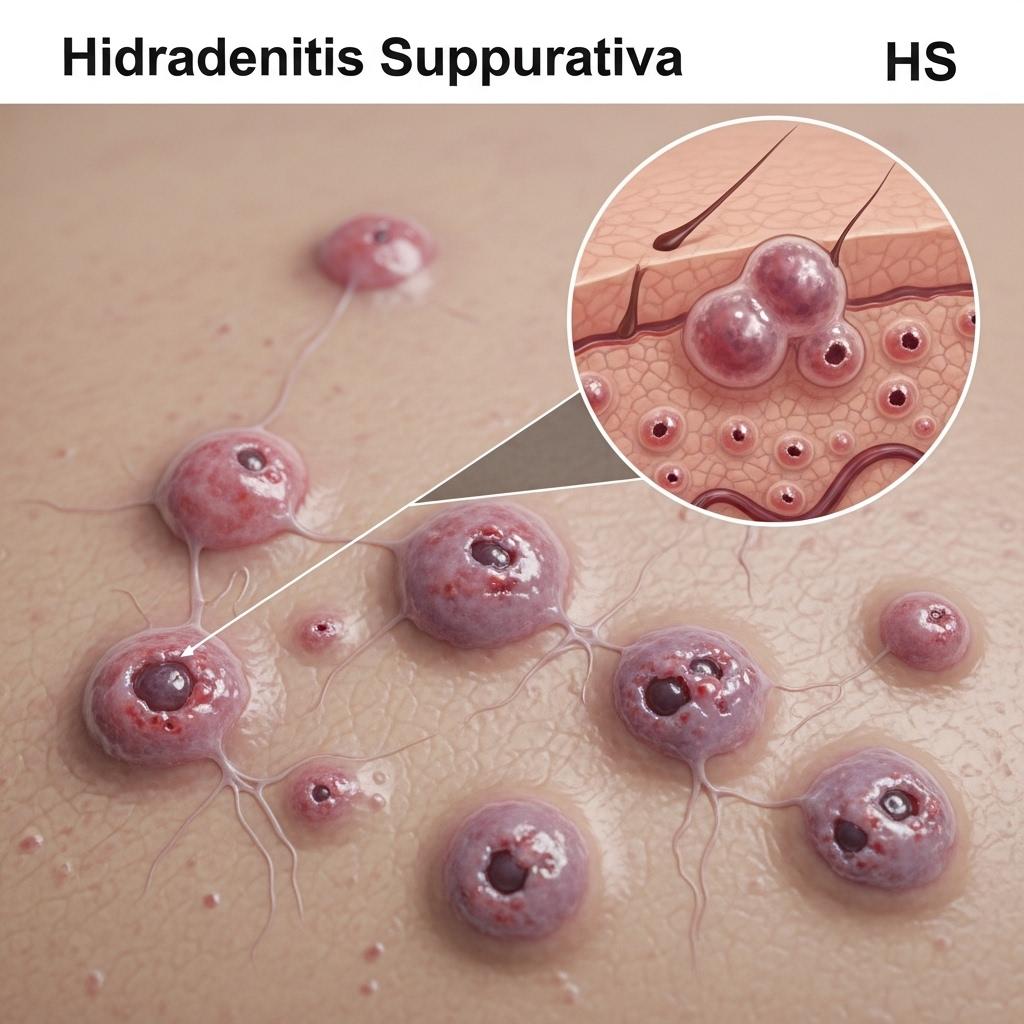HS Diagnosis and Hurley Staging: Why Early Detection Matters

Hidradenitis Suppurativa (HS) is a debilitating, underdiagnosed chronic inflammatory skin condition characterized by painful nodules, abscesses, sinus tracts, and scarring, typically affecting intertriginous regions such as the axillae, groin, buttocks, and under the breasts. Affecting approximately 1% of the global population, HS is three times more common in women and often begins after puberty, impacting quality of life both physically and psychologically.
HS is now understood as an immune-mediated disease involving follicular occlusion, dysregulated inflammation, and genetic susceptibility. As research uncovers the underlying pathways, targeted therapies and early interventions are reshaping its management.
Request a sample copy of the CI report at: https://www.datamintelligence.com/download-sample/hidradenitis-suppurativa-market
Pathophysiology: Beyond Skin Deep
Previously dismissed as a hygiene-related or infectious issue, HS is now recognized as a chronic autoinflammatory condition. The initiating event is believed to be follicular hyperkeratosis and rupture, leading to an exaggerated immune response involving TNF-α, IL-17, and IL-1 pathways.
Genetic predisposition is evident, with up to 40% of patients reporting a family history. Environmental risk factor such as obesity, smoking, mechanical friction, and hormonal influence can exacerbate disease onset and severity.
Clinical Staging and Diagnosis
HS is diagnosed clinically through physical examination and patient history. It is classified using the Hurley staging system:
Stage I: Single or multiple abscesses without sinus tracts or scarring.
Stage II: Recurrent lesions with sinus tracts and scarring.
Stage III: Diffuse involvement with interconnected tracts and multiple lesions.
Delayed diagnosis is common, often taking 7–10 years from symptom onset, leading to irreversible damage. Early recognition is crucial to prevent progression and improve outcomes.
Multimodal Management: From Topicals to Biologics
HS treatment must be individualized based on disease stage, flare severity, and comorbidities.
Management includes a combination of:
1. Topical and systemic antibiotics (clindamycin, rifampin)
2. Anti-inflammatory therapies (dapsone, corticosteroids)
3. Hormonal treatments (anti-androgens, oral contraceptives for females)
Biologics:
Adalimumab is currently the only FDA- and EMA-approved biologic for moderate-to-severe HS. It targets TNF-α and has shown reductions in lesion count and flare frequency.
Other investigational agents include IL-17 inhibitors (secukinumab) and IL-1 antagonists (anakinra, bermekimab), showing promising results in clinical trials.
Surgical and Procedural Approaches
For Hurley Stage II and III disease, surgical intervention is often required to manage chronic sinus tracts and scarring.
Techniques include:
1. Incision and drainage (temporary relief only)
2. Wide local excision with or without grafting
3. CO₂ laser and deroofing procedures
Early procedural intervention, in combination with systemic therapy, can reduce recurrence and disease burden.
Psychosocial Burden and Quality of Life
HS significantly affects mental health, ***ual wellbeing, and work productivity. Rates of depression, anxiety, and social isolation are markedly elevated among patients. Chronic pain, malodor, and drainage contribute to stigma and low self-esteem.
Supportive care should involve dermatologists, pain specialists, psychologists, and wound care teams. Patient education, support groups, and lifestyle counseling are essential components of long-term care.
Read the full CI Insights report: https://www.datamintelligence.com/strategic-insights/hidradenitis-suppurativa
Emerging Research and Unmet Needs
Unmet challenges in HS care include:
1. Lack of biomarkers for early detection or treatment response
2. Limited therapeutic options beyond TNF-α inhibitors
3. Poor access to dermatologic care in underserved regions
Ongoing clinical trials are exploring JAK inhibitors, oral immunomodulators, and novel biologics targeting neutrophil and cytokine pathways. Personalized treatment, based on disease phenotype and genetic profiling, holds future promise.
About DataM Intelligence
DataM Intelligence 4Market Research LLP delivers real-time competitive intelligence across autoimmune, immunologic, and rare disease spaces. Our insights span clinical pipelines, regulatory benchmarks, and commercialization strategies for stakeholders in global life sciences.
🔗 Visit: www.datamintelligence.com
- Art
- Causes
- Crafts
- Dance
- Drinks
- Film
- Fitness
- Food
- Oyunlar
- Gardening
- Health
- Home
- Literature
- Music
- Networking
- Other
- Party
- Religion
- Shopping
- Sports
- Theater
- Wellness


